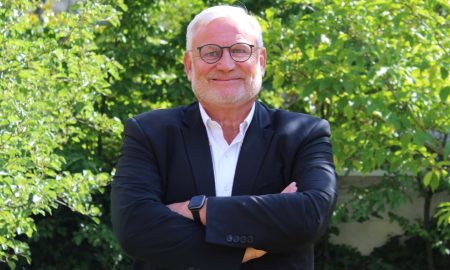Our ecological and energy transition
Reduce CO2The COVID pandemic has undoubtedly accelerated the ecological and energy transition by making environmental and economic issues more interdependent. We are all involved: from suppliers upstream, through production and the supply chain, to our customers downstream, our entire value chain is committed to reducing our environmental impact.

Decarbonisation
Today, all our suppliers are working on greener, more energy-efficient products, and the shortage of raw materials, supply difficulties and rising energy prices are accelerating the search for greener, more economical and local alternatives.
We ourselves are involved in the decarbonisation of our industrial processes in terms of scopes 1 and 2. Our priority is to consume less and consume better. Even if these scopes represent less than 5 % of our carbon impact, they are a priority because we have the means to act directly. Their development depends solely on us, and we must lead by example! In France, we have joined Bpifrance's Decarbonisation Accelerator to make further progress in this area, even though 100 % of French electricity contracts already come from renewable sources, mainly hydro. Internationally, we are rolling out renewable energy and energy consumption reduction initiatives. The majority of our sites are committed to switching to LEDs and/or carrying out insulation diagnostics. Photovoltaic panels have also been installed at our sites in California and Poland, and Canada uses mainly hydroelectric power.
For our customers, the search for more ecological solutions is a real driver of innovation. Our know-how in the custom dosing and packaging of adhesives and chemicals has already made us a niche leader in the aerospace industry. This expertise enables us to deliver just the right quantity, with a view to reducing waste from perishable products. With the G-PACK project, we have now decided to go even further, with new research projects on packaging aimed at recovering containers, reusing and recycling them, and even developing plant-based containers that can be composted.
Working with our stakeholders
By looking at decarbonation, the quality of materials upstream and the recyclability of products downstream, the entire product life cycle is at stake.
Supporting our customers' economic and energy transition is driving our growth strategy. Some of them are also strong drivers of our transformation. This is the case with Schneider Electric, which already encouraged us to join the Global Compact in 2012. After helping us define the method for calculating our carbon impact, this world leader is now supporting us in accelerating our decarbonisation through the Zero Carbon project.
The victory of the ecological and energy transition will be a collective one! It is with all our stakeholders that we will succeed in taking this dimension forward.
At ADDEV Materials, the transition is everybody's business, and we know that to succeed, we have to do it together. Whatever the job, whatever the function, whatever the generation, whatever the country, it's a great way of mobilising people. I'm a great believer in the logic of small steps, and each of us, at our own level, contributes to this collective objective, which is supported by our raison d'être: "Converting industrial challenges into sustainable solutions".
